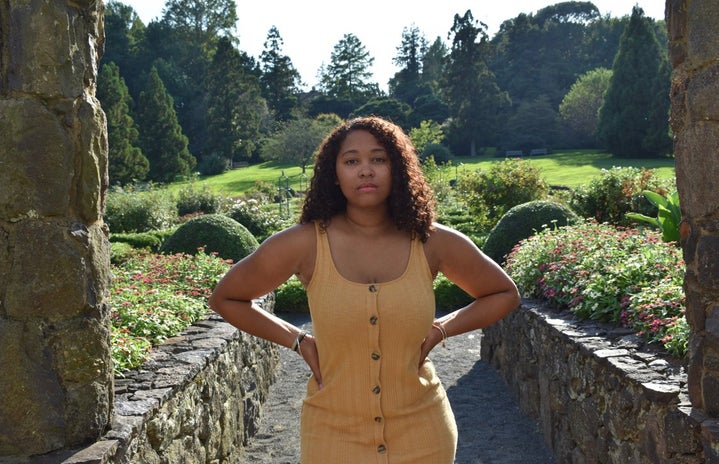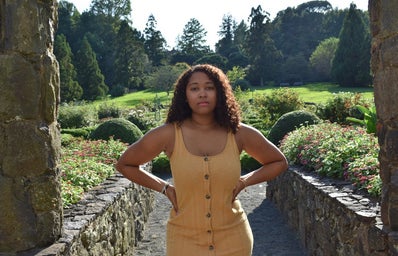For 20 years of my life, I never thought of myself as different. Growing up in a multicultural community, different was normal. As a biracial child, my family had always made me feel comfortable in my own skin. They never pointed out differences between them, who was not mixed with another race (to my knowledge), and myself.
My mother is African American and my father is half Filipino and half African American, thus making me only a quarter Filipino. I know it’s not much, but it’s enough to make me feel whole. From a very young age, it was branded into my brain that I was mixed raced. Not because of the difference, but to never reject who I am. My “Asianess” or “Blackness” has never felt like a burden to me but helped me feel secure, safe, and unique.
Throughout my years, I haven’t once felt like I encountered someone who was directly racist to my face. I always got, what I thought were compliments, about my curly hair and how it wasn’t like natural black hair or comments of how blessed I am to be mixed. When I was younger and talking with my cousins about being biracial, they always found it so interesting. They would ask me questions about things I didn’t know. Questions like if I spoke Filipino (which isn’t a language) or which side I preferred, which I didn’t and still don’t.
Here we are today in the year 2020 where the Black Lives Matter movement is a strong force that’s begging to bring equality to my people once again. Along with this brought upon the awareness of biracial individuals that are a mixture of being African American and something else. I kept seeing posts on Instagram and Twitter but there was this one post in particular that made me question everything. The post called out those who have called biracial people “exotic” as well as fetishizing them. As a biracial, I personally never thought that I could have been fetishized. The thought had never even crossed my mind, nor have I ever been called “exotic”.
About a week or so later, when the salons had opened in New Jersey, I went to go get my hair dyed as an early birthday present to myself. My hairdresser happened to be white and within the first 10 minutes of sitting in the chair, she had showered me with compliments on my naturally curly hair. She then proceeded to ask me what my nationality was. I told her I was African American and Filipino and she replied with, “Oh, how nice! That’s so exotic. Your hair isn’t like black people’s hair.”
I was stunned. I’d never been in a situation like that before. I’d never faced someone who was truly ignorant. I felt, or at least hoped, she had no malice intentions behind these words. The tone in her voice told me that she didn’t mean to hurt me, she just said it obliviously and naturally. By the time I came back to reality, she was already asking me what toner I wanted to use on my hair.
The rest of my time sitting in that chair made me feel tense. I didn’t know how to present myself anymore. Typically, when I’m around new people, I try to be as open as possible to make them feel comfortable but I wasn’t even comfortable myself. For the first time in my life, I felt like I didn’t fully belong. I wasn’t my normal different, I was just that… different.
I’ve never felt singled out in my life. I’ve never felt like being mixed made me unfortunate. When people talk about something exotic, it’s always in a desirable light. Maybe being biracial is “exotic” and maybe “exotic” people are fetishized.
But I’m not “exotic”.
I’m African American. I’m Filipino. I’m a biracial woman. I’m not different from a friend who is 100% African American nor am I different from someone who is only Filipino. I learned that I don’t like being categorized as something that other people have set for me. And that’s something that people don’t see.
I get it, some people simply don’t know that certain things can’t be said but there’s a difference between being openly racist and being uneducated and it’s our job to educate the ones who are open to learning. As for the racist, that’s another story for another time.



